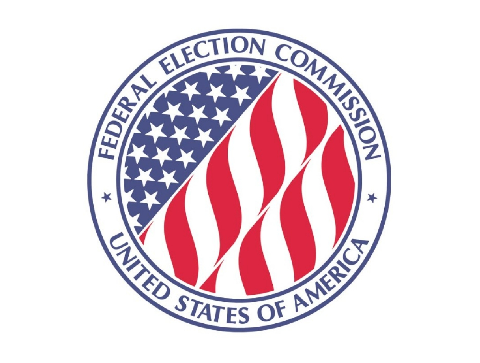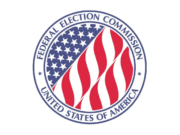On April 11, 2025, the Institute for Free Speech filed comments to the Federal Election Commission on an advisory opinion request (AOR 2025-06), suggesting that the Commission decline to issue an opinion.
Read a PDF of the comments here.
April 11, 2025
Federal Election Commission
1050 First Street, N.E.
Washington, DC 20463
Re: AOR 2025-06 (Campaign Legal Center)
Dear Commissioners:
The Institute for Free Speech (“IFS”) submits these comments on the above-referenced advisory opinion request (the “Request”). The Commission should decline to issue an opinion because the Request is not a proper advisory opinion request and is frivolous because it fails to present any serious legal question.
- The Request is improper and lacks specificity
As Campaign Legal Center (“CLC”), which submitted the instant Request, asserted in comments on another recent advisory opinion request, requests that “present[] a general question of interpretation” are improper.[1] According to CLC, the Commission should deny requests that “lack[] the necessary specific information” or fail to “include a complete description of all facts relevant to the specific transaction or activity.”[2]
By CLC’s own standards, its Request is improper.
At bottom, the Request presents a “general question of interpretation” about the applicability of the President’s Executive Order 14215 (February 18, 2025) (the “EO”) to interpretations of the Federal Election Campaign Act (“FECA” or the “Act”). Despite the Request’s protestation that it does not “seek the Commission’s views on the EO,”[3] that is exactly what the Request attempts to do.
By its plain terms, the EO, which is recited in the Request itself, addresses only whether any “employee of the executive branch acting in their official capacity may advance an interpretation of the law as the position of the United States that contravenes the President or the Attorney General’s opinion on a matter of law.”[4] Yet, the Request is asking whether CLC may advance an interpretation of the law “that [] would be inconsistent with the President’s and the Attorney General’s opinions on matters of law” in a complaint filed with the Commission.[5]
It is as clear as day that the EO does not apply to CLC, and therefore it is incomprehensible what the Request is even asking about if not the Commission’s view on the EO. Indeed, the ultimate question the Request implicitly presents is whether the EO permits the Commission to adopt CLC’s preferred legal position in an enforcement matter “that [] would be inconsistent with the President’s and the Attorney General’s opinions on matters of law.” This is the very type of “general question of interpretation” that CLC itself recently claimed was an improper advisory opinion request.
Putting that detail aside, by CLC’s own recent standards, the Request lacks the necessary specificity for a proper advisory opinion request. While the Request (the public version of which is redacted) apparently specifies the person or entity that CLC purportedly intends to file a complaint against, the Request otherwise provides no details whatsoever on:
(i) what specific acts the would-be respondent is alleged to have undertaken;
(ii) how those acts specifically violate the FECA; and
(iii) how or why, exactly, “[t]he legal assertions in [CLC’s putative complaint] would be inconsistent with the President’s and the Attorney General’s opinions on matters of law.”[6]
This is exactly the type of specificity that CLC claimed was lacking in AOR 2025-01 that, according to CLC, made the other request improper.[7]
- The Request fails to present any serious legal question
The Request purports to ask whether the FECA “permits” and “authorize[s]” CLC to file the complaint described in the Request.[8] There cannot be any serious question that, under the FECA’s plain language, “Any person who believes a violation of this Act . . . has occurred may file a complaint with the Commission.”[9] If CLC believes someone has violated the Act, then it may file a complaint with the Commission, full stop. All of the signatories on the Request are sophisticated campaign finance attorneys and veterans of the agency. They clearly know how to read the statute and are more than familiar with the Commission’s complaint process. They clearly know they are permitted to file a complaint. Indeed, CLC is a serial complainant before the Commission.
The Request’s attempt to frame CLC’s question in terms of the requirement that complaints be sworn under penalty of perjury fares no better.[10] Again, the EO, by its plain terms, clearly does not speak to the perjury issue. The EO only addresses “interpretation[s] of the law.” By contrast, the FECA’s requirement that complaints be sworn under penalty of perjury clearly only pertains to factual assertions in a complaint.
Specifically, in addressing the perjury provision, the Commission’s regulations provide that:
(c) . . . The complaint should differentiate between statements based upon personal knowledge and statements based upon information and belief.
(d) The complaint should conform to the following provisions:
. . .
(2) Statements which are not based upon personal knowledge should be accompanied by an identification of the source of information which gives rise to the complainant’s belief in the truth of such statements;
(3) It should contain a clear and concise recitation of the facts which describe a violation of a statute or regulation over which the Commission has jurisdiction; and
(4) It should be accompanied by any records supporting the facts alleged if such records are known of, or available to, the complainant.[11]
All of these elements address factual issues, and not the “interpretation[s] of [] law” that the EO addresses and that the Request asks about.
The federal perjury statute referenced in the FECA’s complaint provision[12] also is limited to factual representations, and not the “interpretation[s] of [] law” that the EO addresses. Specifically, the perjury statute applies to anyone who:
in any matter within the jurisdiction of the executive, legislative, or judicial branch of the Government of the United States, knowingly and willfully—
(1) falsifies, conceals, or covers up by any trick, scheme, or device a material fact;
(2) makes any materially false, fictitious, or fraudulent statement or representation; or
(3) makes or uses any false writing or document knowing the same to contain any materially false, fictitious, or fraudulent statement or entry . . .[13]
One simply cannot knowingly and willfully violate the federal perjury statute by advancing a disputed legal position. Again, the signatories on the Request surely must know this.
- Conclusion
As CLC is well aware, there is already pending litigation challenging the applicability of the EO to the FEC.[14] Indeed, CLC even filed an amicus brief in that matter. The judicial branch is the appropriate forum to address CLC’s concerns with the EO. It is neither necessary nor appropriate for the Commission to address the same issue in an advisory opinion proceeding.
The Commission should not allow the advisory opinion process to be used as a vehicle for frivolous requests. For all of the reasons discussed above, the Commission should decline to issue an opinion in this matter because the Request is improper on multiple levels.
Sincerely,
Bradley A. Smith Eric Wang
Chairman Senior Fellow
[1] CLC AOR 2025-01 Comments (Sherrill) (internal quotation marks omitted).
[2] Id. (internal citations and quotation marks omitted).
[3] Request at 2.
[4] Id.
[5] Id.
[6] Id.
[7] See CLC AOR 2025-01 Comments (claiming the request was improper because it “does not identify the political organizations that Rep. Sherrill would contribute to”).
[8] Request at 2-3.
[9] 52 U.S.C. § 30109(a)(1).
[10] Request at 2 (“CLC seeks an advisory opinion as to whether section 30109(a)(1) permits CLC to file, under penalty of perjury, the above-described complaint with the FEC.”).
[11] 11 C.F.R. § 111.4 (emphasis added).
[12] 52 U.S.C. § 30109(a)(1).
[13] 18 U.S.C. § 1001.
[14] Democratic National Comm., et al. v. Donald J. Trump, et al., No. 25-cv-587 (HA) (D.D.C. 2025).













